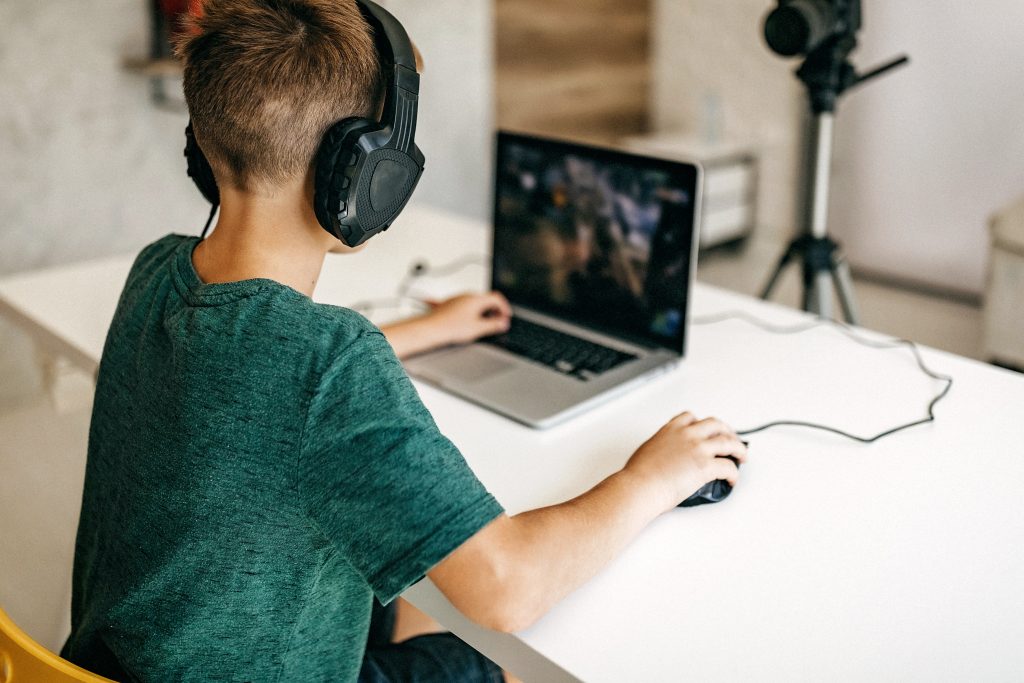The lockdowns of 2020, and now 2021 have played havoc with family routines. One of the most noticeable knock on effects for many parents is an increase in screen time for their teenagers. Between online learning, social media and gaming – it can sometimes feel as if their heads are never turned far from a screen. In some families it has been a source of tension, as parents try to find some balance between the virtual world and getting outside into the real world for the daily exercise that’s still allowed, or spending some off-line time with siblings.
It’s a tricky issue to navigate – particularly as parents are mindful of how isolating recent months have been for their teenagers, cut off as they have been from the chance to see friends at school every day, hangout socially afterwards, or go along to the sports clubs or hobbies that would usually punctuate their weeks. For many families, this means there’s been a relaxation in any rules that are normally in place around screen time. But how much is too much, and is screen time always bad?
It’s not all the same. The first thing for parents to bear in mind is that not all screen time is bad. Consider that while scrolling endlessly on Instagram and TikTok or watching Netflix are passive activities – creating videos, making music or even building worlds with friends in Minecraft are all creative or interactive, and positive things for your teen to be doing. Some researchers are beginning to question whether limits on screen time as a whole are as useful as a conversation about what is happening on the screen. If you can talk to your teen about this, see if you can get them consider how they can try and make sure their ‘active’ screen time outweighs the ‘passive.’
What goes on away from the screen. For many parents, one of the main bugbears is the way screentime can suck up time left for anything else. If, as a family, you can agree that there will be some times in the week or in the day when your child gets outside, does some reading or cooking, or gets some exercise – then you’ll likely feel you’re on the right track.
Phones and bedtime. Many children and teens are used to bringing their phones into their bedroom, in fact the BBC reported on Childwise research early last year which revealed that 57% of children up to 16 years old always have the phone beside their bed. Many of us know from our own experience that looking at a screen late at night can delay sleep or impact our sleep patterns, a fact borne out by the research: it’s been reported that research by the Journal of the American Medical Association indicates children had an 88% higher risk of not sleeping enough when devices were in the bedroom. This is important because we know that disrupted sleep has a huge knock on effect on everything from mood and motivation, to appetite and how well your immune system functions. While phones and bedtime can certainly be a flashpoint in families, if you can talk to your teenager about logging off before they wind down for the night and leaving the phone outside their room, they will be developing habits that will stand them in good stead for a lifetime.
Are there any red flags? Some parents are well aware that over use of screens has a definite effect on their child’s mood. If you spot signs like this, there could be something to address:
- They seem distressed or anxious if they are away from their screen
- They can’t settle down to off-line activities – reading or drawing for example
- They’re deceptive about their screen use – hiding devices in their room or using them when asked not to
Ultimately, though, WHO guidelines and parenting advice aside, every family is different, and each finds themselves coping with these difficult times as best they can. For many, technology has been a lifeline in recent months, acting as a window back to school life, social life and something a little like normality.
The team at MyTutor discusses these issues, and provides a rundown of some of the amazing online resources that could help your teenager use their screen time more creatively here.
